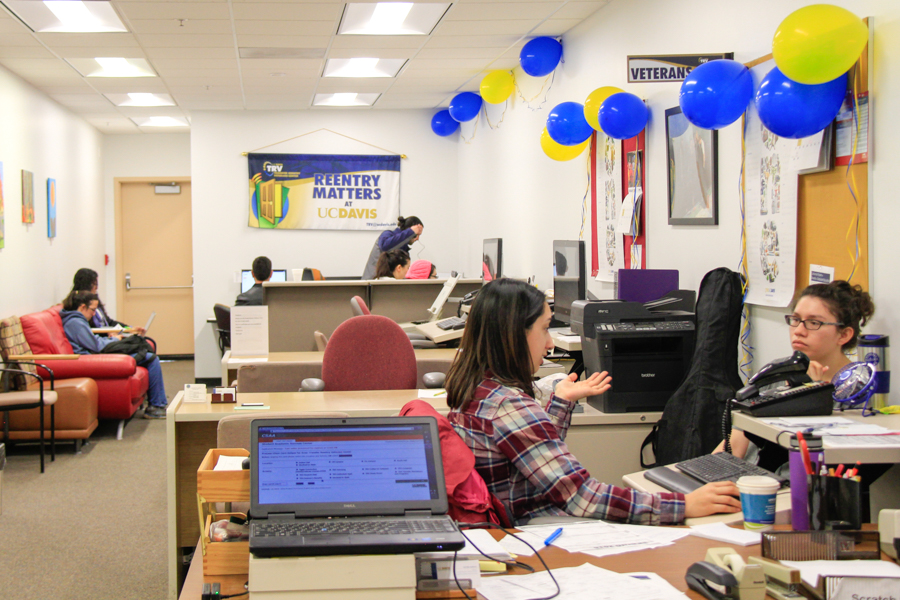
Resurrected student organization seeks to restructure orientation to cater to reentry students’ needs
Older, Wiser Learners (OWL), a student organization run by transfer and reentry students, recently reactivated at the end of Fall Quarter 2015 for the first time since its discontinuation back in 2007.
OWL, which is primarily made up of undergraduates who do not fall within the 18- to 22-year-old age range, aims to make this smaller and more non-traditional group of older students more visible at UC Davis in order to foster a sense of community with other transfer, reentry and veteran students.
The organization is supervised by Victor Garcia, who also serves as the primary advisor for students at the Transfer, Reentry and Veteran (TRV) Center. The TRV Center addresses the needs and concerns of TRV students who usually begin their studies at UC Davis with special circumstances, such as raising dependents, or entering or reentering the university after serving in the military.
“OWL is a student organization resurrected by students who participated in a seminar that I facilitated [EDU 198],” Garcia said. “These are students who are over 25-years-old, students who have dependents, and even single parent students. The transition is especially hard for them because, in addition to being a student, they have other responsibilities like raising their kids, being the head of the household and working to pay the bills.”
Thea French, a reentry sustainable environmental design major and the secretary of OWL, said that her responsibilities as a mother have often interfered with her lecture attendance.
“I decided to leave my high school girls back in Sunnyvale because I didn’t want to uproot them,” French said. “Sometimes life happens. They get sick or they’re having a mental breakdown, and I have to miss three or four lectures in the middle of the week because I have to take a train home to take care of them. It would be nice if the faculty had some sort of sensitivity training to understand these circumstances.”
Another OWL member, Ilse Manuela, a 27-year-old transfer/reentry cognitive science major, has a nine-year-old daughter living with her in Davis and struggles to plan her school routine around her daughter’s schedule.
“The first challenge I had was when I came to orientation to sign up for classes,” Manuela said. “I had to keep in mind the hours of childcare, when my daughter would be in school, and who’s going to pick her up. Resources to help me with those issues were not readily available. At orientation, everything seems geared toward the traditional students, the 18-year-olds.”
Receiving financial aid has also been an issue for Manuela.
“Even at the [financial aid] department, I applied for some scholarships [for students with dependents], but the cut-off was for people who have children who aren’t older than six-years-old. I thought that was unfair. It’s not like children get cheaper as they get older,” Manuela said.
One of the main goals of OWL is to push for a reform of the first-year experience (FYE) orientation structure, such as holding a special orientation session for TRV students led by TRV orientation leaders.
Manuela specifically said that priority registration and advisers who can direct students to programs like child-care should be offered at orientation. She also said that there should be more financial aid opportunities for students with dependents and that Unitrans should be free for the children of university students.
Sam Park, one of the incoming ASUCD senators who identifies as a transfer student, promised to advocate for the restructure of orientation in his election campaign.
“We are currently researching better ways to outline resources on the FYE packet,” Park said. “I want to provide a better directory for advising, student health and mental health issues for these students. Overall, we’re trying to improve the current packet that we have.”
OWL has many plans to voice these issues and make themselves more visible on campus.
“OWL is going to outreach more and get involved during events like Picnic Day and Whole Earth Festival,” Garcia said. “Many of these students can’t experience campus life because they have kids to take care of. I hope that OWL will give these students more of a reason to stay on campus and to spend time with people who they can relate to. I don’t want them to feel isolated.”
Written by: Julian Leus – campus@theaggie.org









